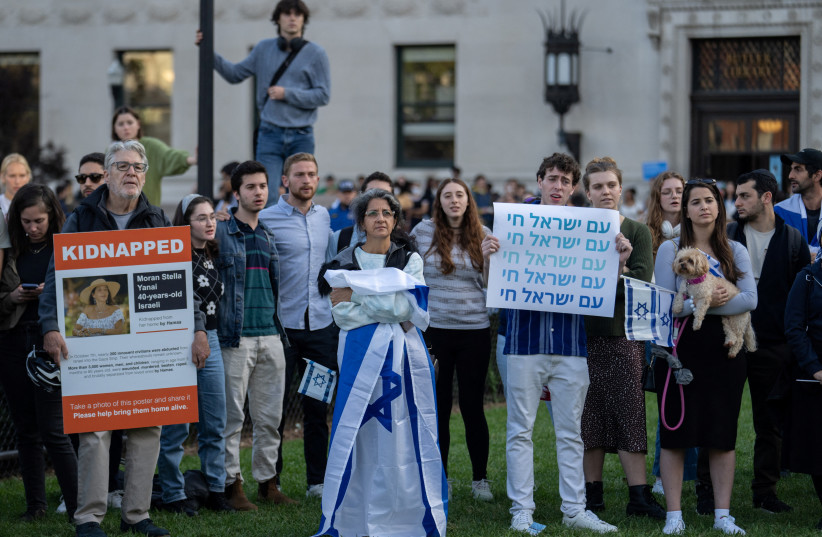The large majority (85%) of Israelis abroad feel responsible for defending Israel in their host countries, according to a new survey published by Mosaic United and the Diaspora Affairs and Combating Antisemitism Ministry on Monday.
The survey collected responses from 2,021 Israelis aged over 20 years and living abroad for at least three years. The data was collected from January 29 through February 11, 2024.
Another of the survey's findings was that Israeli respondents said they were increasingly identifying with the state of Israel. Over half (56.1%) stated that their identification with Israel has increased or greatly increased. An additional 38.2% stated that their identification level remained the same, and only 5.7% stated that their identification had weakened or greatly weakened.
Some 64.2% of respondents said they believed to a great extent that Israelis must take an active role on behalf of Israel in the countries where they live. An additional 20.9% said they believed they needed to take an active role to a moderate extent. Only 7.9% of respondents expressed the belief that they only need to take an active role to a small extent, and 7.0% believe they need not at all.
Nearly half (49.8%) of respondents said they felt they were well prepared to lead a discussion on the situation in Israel or advocate on behalf of Israel. An additional 34.7% believed they are to a moderate extent able to discuss or advocate for Israel. An additional 11.8% said they were able to a mild extent, and 3.8% believe they were not at all able to lead a discussion or advocate for Israel.

How Israelis are showing their support:
78.9% of respondents said that they shared their support for Israel on social networks, while 69.4% answered that they donated money to Israeli causes.
Moving offline, 62.1% of respondents said they had participated in rallies or marches in support of Israel, and 60.0% participated in Israeli community events.
Over half (57.3%) said they took part in public diplomacy (hasbara) activities, and 29.4% claimed to have initiated activities to support Israel. Only 9.4% said they traveled to volunteer in Israel.
Despite the overwhelming majority of respondents feeling connected to Israel, only 1.8% said they intended to return to live in Israel in the coming months following October 7th. 7.0% said they intended to return to and have practical intentions, 29.5% intended to return but did not have practical intentions, and 61.7% did not intend to return to live in Israel.
The survey also found that 69.2% of participants with children do not intend to return to Israel or enlist in the IDF.
Increase in global antisemitism
The majority of Israelis polled (68.6%) said they believed that antisemitism has increased to a great or moderate extent in the country where they live since October 7th. Broken down further, 83.1% of respondents in Canada felt antisemitism increased, 81.2% from Australia, 66.2% from the UK, 63.6% from the US, and 60.6% from Germany.
31.5% of respondents said they felt that antisemitism had increased only marginally or not at all in the country where they live.
Avi Cohen-Scali, Director-General of the Diaspora Ministry, stated, “Investing in Israelis, even when they are abroad, is a fundamental value. We are not only preserving the connection to Israel and the Jewish identities of thousands of Israelis but also fostering solidarity with and activism on behalf of Israel. Israelis abroad constitute a strategic asset for Israel, as evident by their leadership of rallies and demonstrations worldwide.”
Meir Holtz, CEO of Mosaic United, added, “Our ongoing and war-time strategy of nurturing grassroots communities for Israelis abroad advances not only the building of active, resilient communities of Israelis but also larger and more connected Jewish communities globally.”
